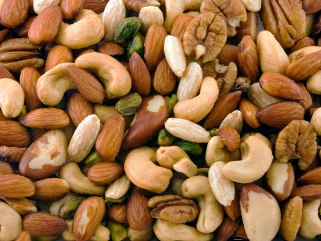
Good things come in small packages and nuts are no exceptions. These nuggets are packed with healthy fats, protein, vitamins, and minerals. Studies have suggested that people who include nuts, including peanuts, in their diet have fewer common health problems such as heart disease, cancer, diabetes, etc. Here are some facts you should know before including nuts in your diet:
Nut varieties
A nut usually have a hard shell and a seed and most fruits we called nuts are not technically nuts nonetheless they provide similar health benefits. They include hazelnuts, chestnuts, and acorns, almonds, Brazil nut, candlenut, cashew, Chilean hazelnut or Gevuina, macadamia, Malabar chestnut, pecan, mongongo, peanut, pine nut, pistachio and walnut.
How much to eat
According to the American Heart Association, include 4 servings of nuts a week in your diet. A serving is a small handful or 1.5 ounces of whole nuts or 2 tablespoons of nut butter. Avoid salted or oiled ones; instead, eat them raw or dry roasted
Calorie count
Almonds, cashews and pistachios have the lowest calorie count at 160 per ounce while macadamia nuts and pecans have the highest at 200 per ounce.
How to eat
You can have them as snacks whenever you feel hungry or sprinkle them over desserts and salads
Source: Zee News

